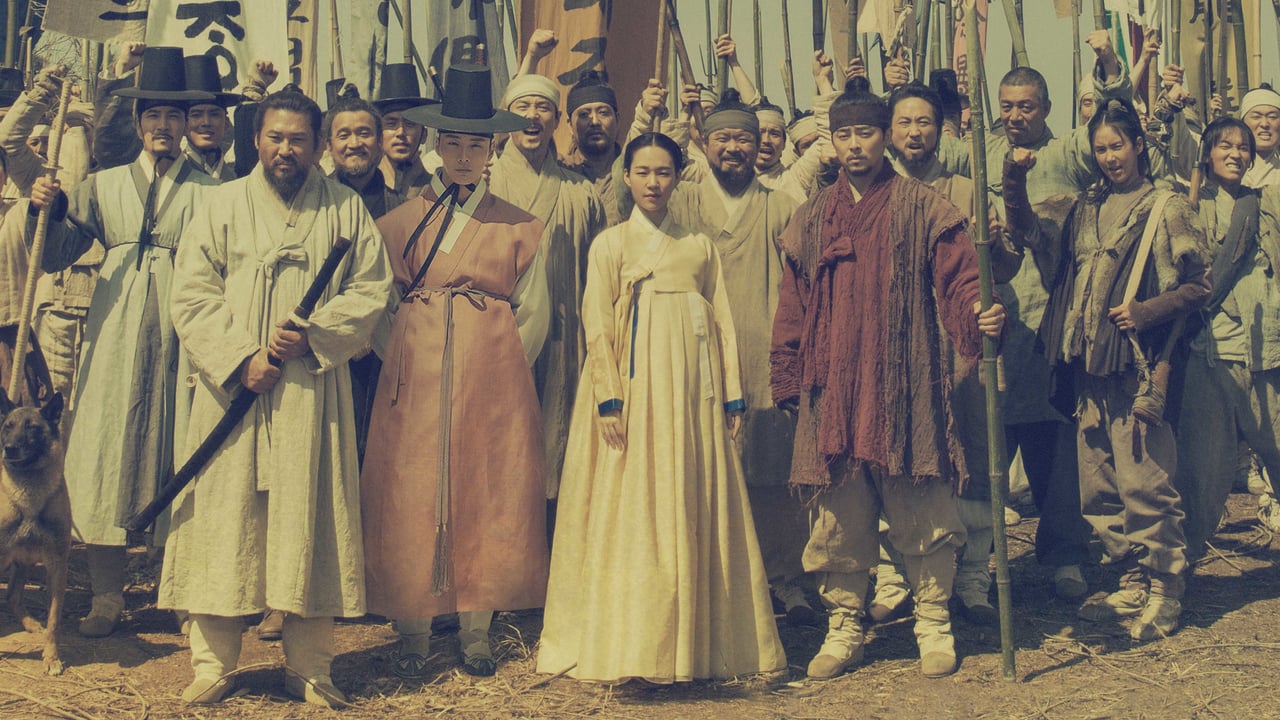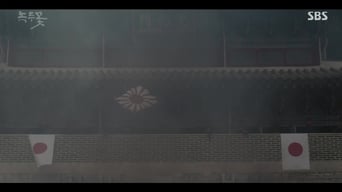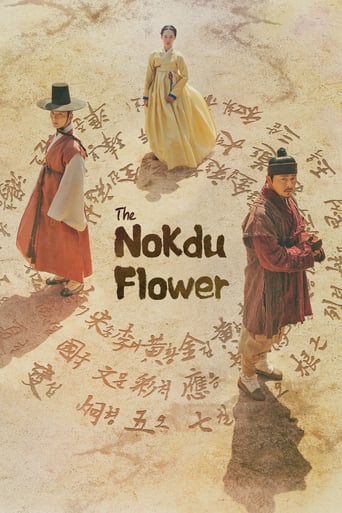The Nokdu Flower (2019)

Set during the period of the 1894 Donghak Peasant Revolution against the Japanese, the drama tells the story of two half-brothers, one illegitimate and low born, and one, part of the pro-Japanese ruling elite, who find themselves on opposite sides of the conflict.
Watch NowThe Nokdu Flower
2019

Set during the period of the 1894 Donghak Peasant Revolution against the Japanese, the drama tells the story of two half-brothers, one illegitimate and low born, and one, part of the pro-Japanese ruling elite, who find themselves on opposite sides of the conflict.
Seasons & Episode

Baek I-hyeon returns home from studying abroad. As the townspeople's fury against the government grows, Jeon Bong-jun plans an uprising.




When his father is injured, Baek I-gang brings him to safety and finds reluctant help from Song Ja-in. Bong-jun and his followers blow up a dam.




As I-gang struggles to accept a loss, he's handed a new role in his family. A powerful supporter of the Donghak movement is imprisoned.




Looking for a fresh start for himself and his mother, I-gang tells Baek Man-deuk he wants to leave. His plans are quickly sabotaged.




I-hyeon's sudden conscription stuns the Baek family. Meanwhile, I-gang shows up at the Donghak camp with a request for Bong-jun.




In Bong-jun's army, I-gang has a long way to go to earn the others' trust. I-hyeon finds out who was responsible for sending him to war.




When Ja-in is captured by Donghak soldiers, she and I-gang finally meet again. I-hyeon comes back with full intent to marry Hwang Myeong-sim.




I-gang refuses to return to his family. I-hyeon steps into his father's place. After a battle, the king sends a message to Bong-jun and his army.




As Donghak forces take over Jeonju, Hwang Seok-ju agrees to lead the conscripted army. With a rifle on his back, I-hyeon goes with him.




While hunting for the enemy marksman, I-gang's friend is wounded. The Qing army arrives, and with it another — and wholly unwanted — surprise.




To try and save her loved ones' lives, Ja-in delivers Bong-jun's peace treaty to Kim Hak-jin. I-gang accompanies her, and looks for I-hyeon.




As Bong-jun and Hak-jin come together at one table to sign the treaty, I-hyeon is given a secret mission. The Donghak followers celebrate their win.




Bong-jun sends I-gang to Hanyang. I-hyeon grows suspicious when unexpected visitors come to Bong-jun with a strange proposal.




While Japan seeks to meddle with Korea, the king is urged to listen to Bong-jun's plea for nationwide reforms. Ja-in meets Takeda Yosuke.




Enraged by Myeong-sim's forced marriage, I-hyeon snaps. When the Japanese army invades the palace, Ja-in is tasked by the queen to act as a spy.




I-gang doesn't give up on rescuing a fellow Donghak follower who's been taken by the Japanese. Yosuke wants I-hyeon to join hands with him.




I-gang stands trial for hiding his brother's identity as the feared marksman. Meanwhile, I-hyeon starts anew as the leader of the Tenyukyo.




At the king's orders, Bong-jun begins to raise an army to fight the Japanese. A dead body placed in front of the palace causes a stir.




In Jeonju, I-gang and I-hyeon meet again. I-hyeon looks into what Bong-jun is hiding, and I-gang is reinstated as a Donghak army leader.




The king is forced to issue a statement that reflects not his wishes, but Japan's. Ja-in's plans to get to Samnye place her in danger.




The Donghak army and its allies engage in a mismatched battle against the Japanese. Bong-jun grapples with whether to keep going or to disband.




The Japanese legation orders all Donghak followers to be killed. While I-hyeon returns to his family in Gobu, I-gang searches for fellow survivors.




I-gang and his fellow soldiers intend to keep on fighting. Before his trial, Bong-jun speaks to I-hyeon. A traitor is given his dues.




Soon after I-hyeon is appointed as Gobu's new magistrate, I-gang's presence in town gets found out. The brothers bid each other farewell.



Set during the period of the 1894 Donghak Peasant Revolution against the Japanese, the drama tells the story of two half-brothers, one illegitimate and low born, and one, part of the pro-Japanese ruling elite, who find themselves on opposite sides of the conflict.
Watch Trailer
Free Trial Channels






















